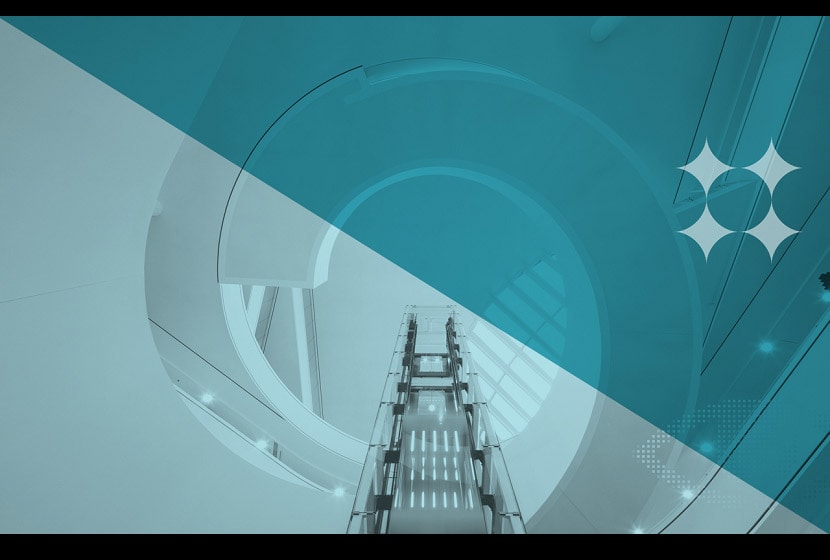Entropy, serendipity, procrastination, empathy and resilience are words new to most of us, but increasingly familiar to those who contribute to thinking about the changes we face.
Here's why, in order of appearance.
Entropy
This word has a different meaning depending on the scientific context in which it is used.
In the context of current change, he alludes to the fact that the West, which has tried to conquer the world economically, militarily and culturally, is entering a phase of ebb where the force it has put into this conquest is dispersing throughout the world to the point of emptying it of its singularity and even of its vital energy.
His strength has been physical, but above all cultural: his growing mastery of the arts and sciences has enabled him to create new forms of wealth and to develop an increasingly effective way of "living together".
Concretely, during the last three centuries, Europe and then North America brought home raw materials, processed them and then resold their manufactured products. By producing on a large scale in its factories, it learned to be efficient, to master the material and to make its products perform well. She accumulated financial wealth, but more importantly, she accumulated knowledge.
Now it is reaching the limits of its system and its superiority is declining. Its mastery of the arts and sciences is spreading throughout the world and its ability to accumulate wealth is diminishing to the benefit of other continents.
Its financial logic, which has been its accelerator, becomes the vector for the dispersion of its capacity for influence. At issue is the belief that "cheaper labor elsewhere." is a source of wealth to be exploited. This is unquestionably true, only in the first instance.
Indeed, it is by doing things that know-how is created and tools and methods are enriched. When these elements are relocated, know-how withers and then disappears. The same applies to tools and methods. What is used to create wealth fades away.
The reconstruction of this lost heritage is becoming very expensive because, in the meantime, the other citizens of this planet have made progress, have had new ideas and have set themselves new challenges. It is becoming difficult to run behind.
In reality, Westerners have intended to outsource "low value-added" tasks, i.e. those involving the intelligence of the hand and the patience of the body. They wanted to keep with them the tasks that concern the intelligence of the head and creativity.
This is not realistic. It is in contact with matter that ideas are born. In particular those of producing more efficiently while raising quality. A company is a coherent whole that requires a good synergy between all its talents. The subordination of one over the other is not a good basis for progress and creativity. It has been necessary when it has been necessary to lead armies of low-skilled labour. Nowadays, tasks require more and more qualification and decision-making ability. Subordination is no longer possible.
The question is therefore to know what use has been made of the financial gains obtained by reducing the labour costs of Western products in this way ... the answer is not clear. Too bad.
 Serendipity
Serendipity
This word, roughly translated from the English, tends to refer to the act of creating chance to discover what we would probably not have found with a rational approach.
The mere recognition of such an approach represents a change of mentality in the face of the omnipotence of the scientific approach of the previous century. This does not mean that the scientific approach is outdated. It will simply officially coexist with other approaches deemed to be correct.
This corresponds to the fact that progress in a growing number of fields can no longer come from deepening knowledge of its material and its market. It is necessary to know how to go outside one's own framework, to listen to the ingenuous and hyper-experts who are not in the usual perimeter.
This profoundly restructures the innovation process, which takes place to a small extent within the company and for the most part outside through partnerships and, more commonly, through startup purchases.
The startup fabric thus becomes a hinge between the world of research and the entrepreneurial fabric. It must be supported by the community and more particularly by the entrepreneurial fabric, which is not the case. At present, it is essentially the responsibility of the community, at least in France. This paradigm cannot last because our startups are starving and households are poorly rewarded when they take risks by providing the support that makes up for this anomaly. The community cannot support innovation at all costs when it is intended to benefit the fabric of transnational companies. It must therefore ensure that cultural richness, tools and methods take root.
Finally, the recognition of serendipity as an alternative approach to the creation of new ideas and knowledge puts our vision of the elite back into perspective. The multiplicity of talents and experience bearers requires us to decompartmentalize exchanges and curricula. The perception of the elite is no longer based on the original diploma, but on facts and personal commitments.
That is why we need to expand our capacity to produce potential elites in all fields.
 Procrastination
Procrastination
This term refers to putting off until tomorrow what can be done on the same day. This is not good, a priori, since lost time never makes up for lost time.
In fact, time is not wasted if it is invested in the germination of ideas, exchanges, experiences, observations or the deepening of knowledge. Ideas have their own path. They do not take date with our agendas. They need to be blended with matter, reality, objections or time. They need to be pencilled, verbalized and modeled.
But beware: there is also bad procrastination, which is unproductive or even counterproductive. We are too beginners in this field to diagnose the depressive state and the state of internal mobilization, but already some gurus give us advice ...
Recognizing some usefulness in this form of productivity, without blaming the person who practices it, indicates that we recognize that life is more complex and that true wealth lies beyond the simple fact of producing and consuming.
 Empathy
Empathy
According to Jeremy Rifkin, we are entering the era of empathy. Despite a long book on the subject, it has not been fully understood. Empathy is a complex relational mode in which individuals make the effort to understand each other with the idea, not to dominate each other in a fight, but to build an amenity, if possible an innovative one.
This idea is an evolution in human relations, as it is the most sophisticated we have ever developed. It follows that the leaders we will be looking for will have a richer profile than we have admired so far. The new leaders are gatherers and strategists capable of understanding and anticipating the social and political environment with the idea of building agreements that are relatively sustainable but also adaptable.
Empathy is the opposite of the logic of the twentieth-century financialist, whose view is short and who imposes it around. In fact, it is this emerging need to see far ahead that is driving our civilizational metamorphosis. The ecological movement has a lot to do with this because it is clear that we cannot tame nature, but rather deal with it. The scale of nature is very long-term for us humans.
By extension, we recognize that we have an interest in listening to the crowd because it naturally contains the most cutting-edge experts who can provide ideas to address the most complex issues.
As a result, the notion of elite becomes a notion of the past. Another notion will emerge, but its contours are not yet clearly established.
 Resilience
Resilience
This word expresses the ability to adapt to a changing environment. At present, it is particularly relevant because the agents of change must move forward despite the capacity of institutions to ensure the stability of the systems in place.
It is therefore the resilient who bring about change, those who know how to listen to the whistleblowers, then build solutions and start implementing them.
Without them, nothing is possible. Without them, we would sink into chaos with increasingly unsuitable institutions, unwittingly organizing our descent into a long slumber ...
The challenge, then, is to identify good and bad resilience. This is why we all need to be attentive in this time of change.
One of the keystones of change comes from the intrusion of digital technology into our daily lives. It is with it that we can be vigilant contributors, each with our own scale, interests and expertise.
The record absenteeism of the last election gives the impression that citizens no longer trust their elected representatives, as if they belonged to a system that simply needs to be maintained while a new system is put in place. It is therefore no longer with them that citizens are debating, but among themselves, via the Internet and the countless colloquia in which they can take part.
Geneviève Bouché, Doctor of Organizational Sciences












